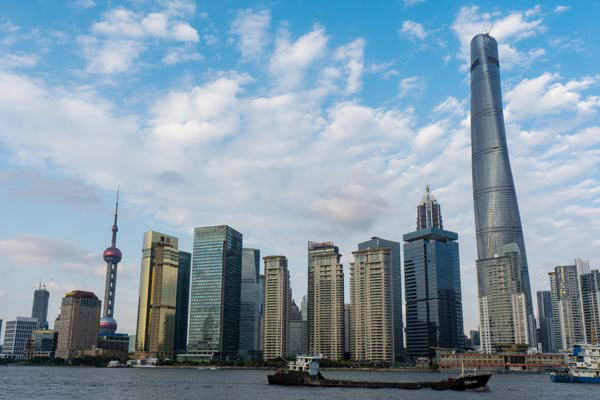Shanghai is Asia's most expensive city for expats
By Hezi Jiang (chinadaily.com.cn)
Updated: 2015-12-15
 |
|
Shanghai Tower (the highest in the picture), a new landmark of Shanghai's financial hub Lujiazui, is nearly complete.[Photo provided to China Daily] |
Shanghai is Asia's most-expensive city and the world's seventh most-expensive for expatriates, according to a cost-of-living survey, which cites the strengthening of the renminbi as the main cause.
Beijing, Hong Kong and Guangzhou ranked eighth, ninth and 14th, respectively, all surpassing New York's Manhattan, which was 15th in the survey by ECA International, a London-based consultancy. Beijing was the second most-expensive city in Asia.
Manhattan is the only American city among the top 20, with the Chinese city Shenzhen close behind at 16th.
Four Swiss cities were the most expensive —Zurich, Geneva, Bern and Basel — and two African cities —Luanda, Angola and Kinshasa, Congo —came in fifth and sixth.
"In spite of the minor depreciation in the renminbi against the dollar over the summer, it has strengthened against most other currencies leading to Shanghai becoming the most expensive Asian city for international assignees,"said ECA's Asia regional director, Lee Quane, in a press release.
"This reflects the general trend seen in China, with Chinese locations gradually moving up our rankings over recent years. It is likely that major Chinese cities will remain expensive destinations for mobile executives for the foreseeable future," Quane said.
"Shanghai and Beijing are more expensive than Manhattan on average for most foods although fresh fruit and vegetables in Manhattan are more expensive. International clothing brands are considerably more expensive in Beijing and Shanghai than in Manhattan, while eating out is significantly cheaper," James Davis, EAC International's head of Marketing and Communications, wrote in an e-mail to China Daily.
ECA International's surveys use a basket of day-to-day goods and services commonly purchased by expats, including groceries such as dairy, meat and fish, fresh fruit and vegetables, as well as household goods, general and leisure services, clothing, restaurants, alcohol and tobacco.
What we do
SAFEA is responsible for certifying foreign experts to work in the Chinese mainland and organizing overseas training for Chinese technical and managerial professionals.







